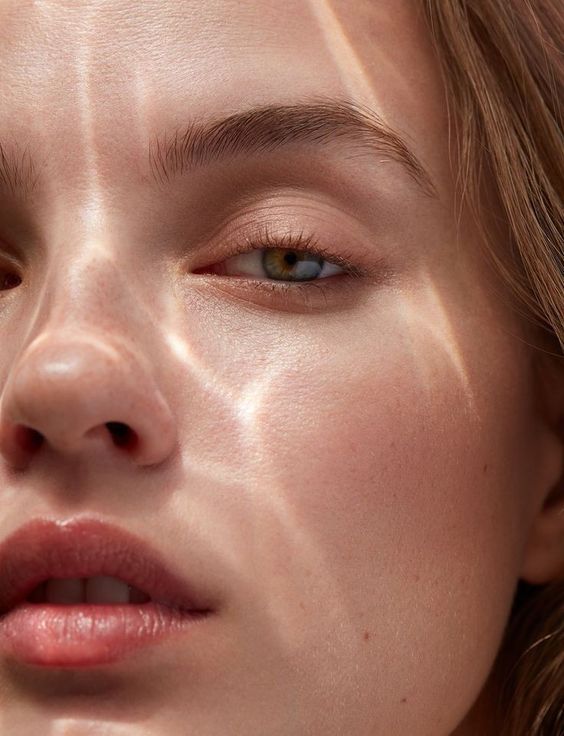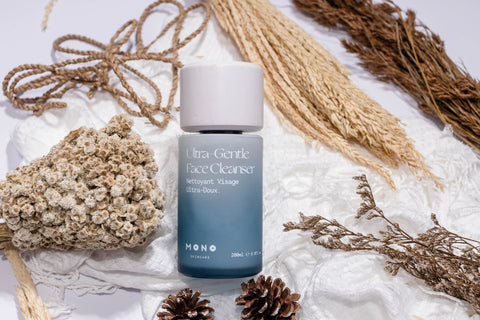
Is Your Skin Losing Water? Get to Know Transepidermal Water Loss
Share
The key to healthy skin is, first and foremost, well-hydrated skin. Water is the building block of new skin cells and an essential ingredient for their survival in healthy skin. Water is vital to the skin; it helps maintain moisture and skin elasticity, reducing wrinkles and promoting a youthful look. Your skin needs to sustain enough water to stay completely hydrated. Not oil, but pure, plain water.
You know chugging 8 glasses of plain water a day is important—but maintaining the moisture in your skin is not that simple. Although drinking plenty of water and eating a water-rich diet is important for overall health, just a small portion of this water reaches your skin. How so? Because other essential organs are in desperate need of it. And there's transepidermal water loss (TWL), meaning your skin is losing water and moisture.
If you have dry, chapped, and dehydrated skin, there's a big chance that you suffer from transepidermal water loss.
Wait, What is Transepidermal Water Loss, Really?
The amount of water that evaporates from your skin is known as transepidermal water loss. Your skin is smart enough to manage water loss and retain moisture on its own, but certain conditions might compromise the function of your skin barrier, worsening dryness. If you're wondering if TWL has damaged your skin barrier, knowing what to check for will help. Flaking, itching, skin tightness, and redness are all signs of TWL.
What Causes Transepidermal Water Loss
Losing moisture from your skin doesn't necessarily mean you don’t drink enough water. It can be triggered due to the lack of humidity in your surroundings, extreme temperatures, unhealthy skin microbiome, or the skincare products you use. Common factors of TWL are:
- The natural process of aging and the decrease of sebum production in the skin
- Allergy
- Exposure to chlorine
- Sunburn
- Dry weather
- Long exposure to the dry indoor air from central heating or air conditioners
- Skin conditions like eczema or dermatitis
- Over-washing and over-exfoliating
- Harsh skincare or face wash ingredients
Every day, everyone encounters at least some TWL. However, too much TWL might cause skin problems. So, how should you treat and prevent transepidermal water loss?
Maintain the Health of Your Skin Barrier
You've probably heard that your skin barrier is critical to the health of your skin! But what is it, exactly? Consider your skin barrier to be a barrier that locks moisture in while keeping irritants out. However, because a compromised skin barrier is the primary cause of transepidermal water loss, maintaining this barrier is vital!
Feed your skin nourishing foods, enough water, probiotic supplements, and topical prebiotic products to help it work correctly. MONO Skincare's prebiotic-enriched products are helpful in a variety of ways, but one of the essential therapeutic characteristics is their capacity to control skin barrier function and integrity. You will notice and feel the difference if you invest in prebiotic skincare.
Swap Your Harsh Face Wash

Harsh ingredients like SLS can strip moisture from your skin. Make a switch to gentle cleansers and see how such simple swaps can make your skin barrier better. Our Ultra-Gentle Face Cleanser is, just like its name, clean dirt and impurities without upsetting the moisture balance on your skin.
Hydrate and Moisture

You might not realize that hydration and moisturizing are two different things! When you incorporate both to your daily routine, you can limit transepidermal water loss. Use products that draw water into your skin to replenish the moisture your skin has lost, such as our pH-Balancing hydrating toner.
Then use water-based moisturizer to keep the moisture locked in. MONO Skincare’s hero ingredient, Biolin P, and the Beta-Glucan—the two nutrients that keep your skin barrier happy and healthy—are abundant in our Face Moisturizer. The Beta-Glucan can penetrate deep to the dermis to deeply moisturize the skin, providing lightweight but intense hydration better than hyaluronic acid. Use it twice; during the day and overnight to seal in moisture and decrease TWL.
Use Humidifier

The amount of TWL of your skin is also influenced by the surroundings! A humidifier can help keep your skin balanced and hydrated if you live in a dry area. The transepidermal water loss will be less noticeable in heavy humidity. A humidifier can assist keep your skin balanced and hydrated if you live in a dry area. You can add aromatherapy to your humidifier and let the therapeutic fragrance relax your mind!
